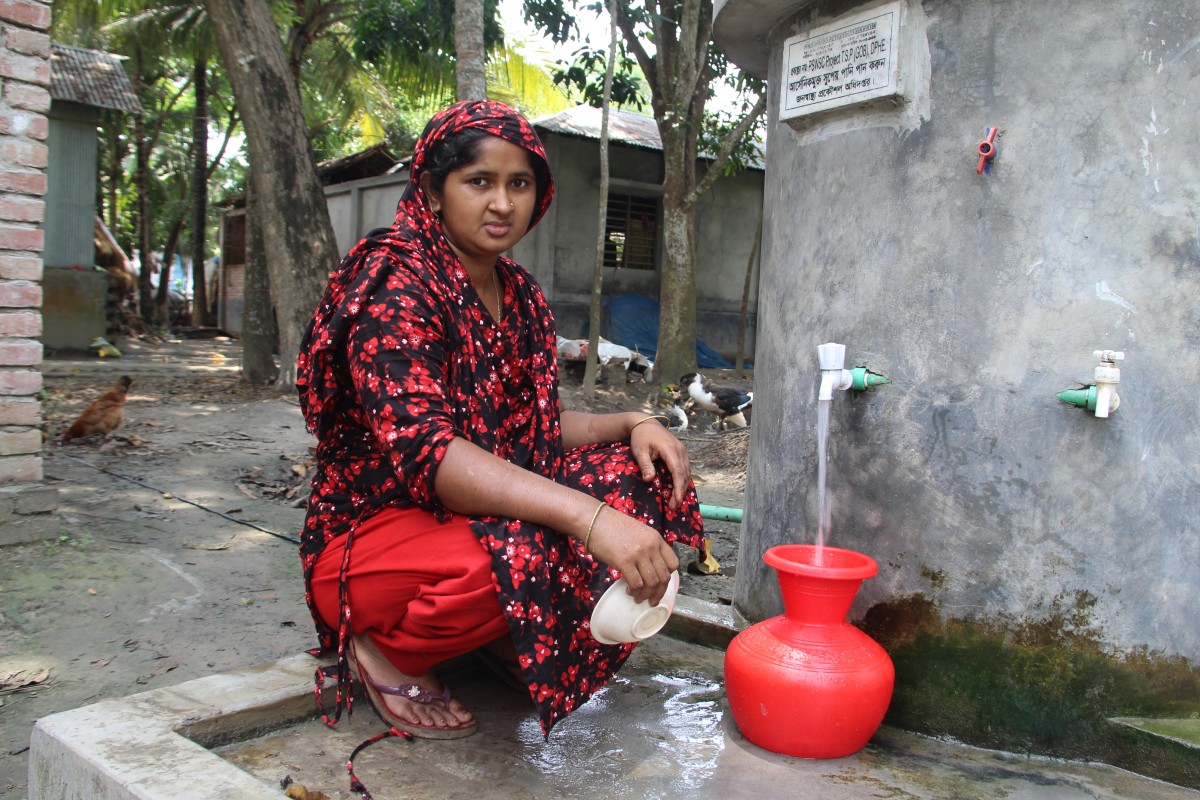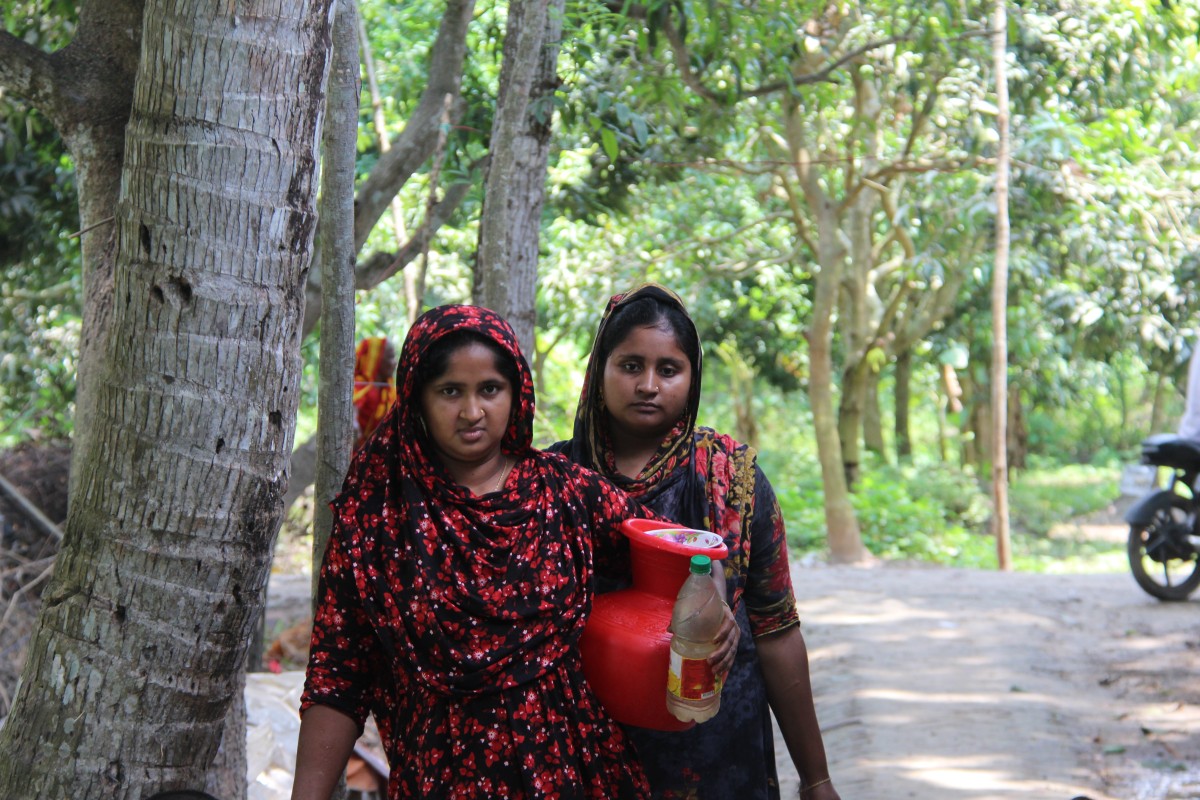"I learned how to make my voice heard." The story from Popy from Bangladesh
'For two months every year, our entire village was flooded. No toilets, no drinking water. We had nowhere to go. I had no idea I could do anything about it myself.'
27-year-old Popy lives in the village of Khorerdanga, in southern Bangladesh. In this area, Simavi's Water Justice Fund supports women's groups in implementing their own climate solutions. Popy explains: 'I have two young daughters and am responsible for running the household and providing for my family. Like many women in my village, I dropped out of school when I got married. As a housewife, I didn't have time to think about water problems. I was always quiet. Women aren't listened to when important decisions need to be made.'

'Everything was under water'
'Every year, our village was ravaged by floods for two months. Everything was flooded—the roads, the fields, the toilets. My husband couldn't work. We had no income. Children got sick because we didn't have clean water.'
Yet, the situation went undiscussed for years. Popy explains: 'Women here aren't used to talking about problems, let alone working together on a solution. We didn't realize then that we, of all people, could change this. That is, until I heard about the women's group Shapla Nari Unnayan Dal.'
The Power of Women
'For the first time in my life, I was in a group with other women, where we discussed what was going wrong in the village. We were all nervous at first, but also curious. What if, together, we could change something?'
The group started small, but with support from the local organization Uttaran, the women learned how to make their voices heard. They received training in water management, as well as in leadership and standing up for their rights. 'Before, I didn't even know we were entitled to government assistance. Now I know: those rights are ours, and we can fight for them.'
'During the meetings, we quickly reached a conclusion: the problem was the silted canals that could no longer drain rainwater. We said: if we dredge those canals, we can stop the flooding. Thanks to the training, we had learned how to engage with the authorities and that we were entitled to support from the Water Development Board.'

A historic meeting
'There were people who said there was no point in doing this. They said, "The chairperson isn't listening to you," or "Why are you wasting your time?" Sometimes we had to go to different places several times before we achieved anything. But we didn't give up. Together, we decided where we would go and who we would talk to. And the people of Uttaran gave us hope that this could work.'
With a well-prepared plan, and strengthened by their training, Popy and other women went to the authorities. 'To everyone's surprise, we were heard. The Water Development Board gave BDT 1.7 million (€13,000) to dredge the canal. I almost couldn't believe it. People always said: no one listens to women. But now we were sitting there at the table, and they gave us the money!'
Pride and Change
The village came together to help dig the canal, which will provide the village with at least three to four years of flood protection.
'I'm so happy and feel so proud. I come from a poor family and didn't finish school, but now, thanks to me, our village is protected. My husband is also very proud. He's now asking for my opinion. That's new.'
But for Popy, this is just the beginning. 'We've proven we can achieve something. Now we're going to see how we can improve our toilets. And after that? We'll see. But we won't stay silent anymore.'
What is the Water Justice Fund?
The impact of climate change is felt primarily through water. The Water Justice Fund supports local women's groups in Kenya, Nepal, and Bangladesh with small-scale investments to strengthen their position and implement local solutions to the water crisis.

